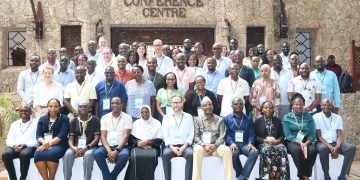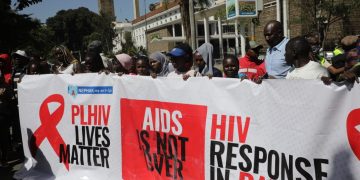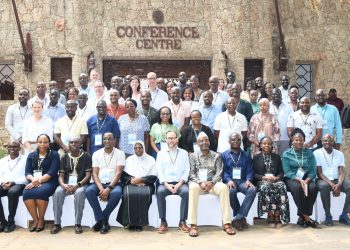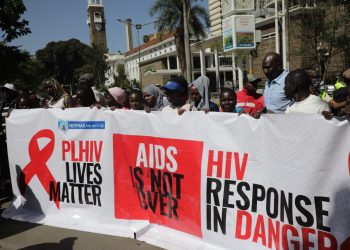Twenty-eight weeks into her first pregnancy, seventeen-year-old Akinyi’s worst fears became reality. She went into premature labor, delivering a stillborn baby. The following day, heavy bleeding began.
The small hospital in her village in Uyoma, Rarieda Sub County, Siaya County, lacked both gynecologists and lifesaving facilities. According to health experts, many rural facilities are ill-equipped to treat obstetric emergencies, forcing patients to travel long distances for care. As Akinyi’s condition worsened, she was referred to Siaya County Referral Hospital over an hour away. By the time she arrived, she had lost so much blood that her organs were beginning to fail.
Kenya’s reproductive health specialists say Akinyi’s case reflects the systemic gaps driving maternal deaths from postpartum hemorrhage (PPH). Globally, PPH a preventable and treatable condition kills about 70,000 women annually, according to the World Health Organization (WHO), with sub-Saharan Africa accounting for 80 percent of the toll.
Kenya’s ministry of Health reports that between 2020 and 2022, nearly 900 Kenyan women died from PPH in health facilities, translating to about 21 deaths every day during childbirth.
Kenya’s reproductive health experts are on a mission to combat postpartum hemorrhage (PPH), the leading cause of maternal deaths in the country.
Through the End Postpartum Haemorrhage Initiative (EPPH-i), a collaborative project of the University of Nairobi, Kenya Obstetrical and Gynecological Society, PPH Foundation, and the Midwives Association of Kenya launched in 2024 to fight PPH- the leading cause of maternal deaths in Kenya.
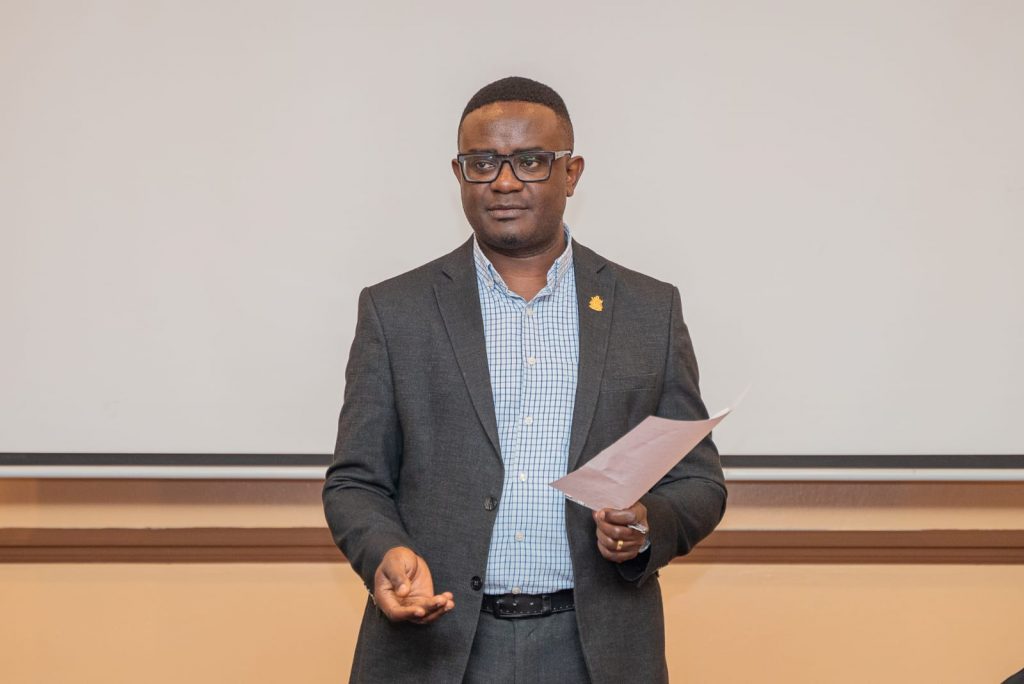
It set out to combat PPH by implementing a four pillar strategy comprising Advocacy and Awareness; Research and Skilling; Health Systems Innovations and Data System Strengthening (ARHID).
At its inception, the project adopted an annual PPH Run as its flagship advocacy activity, alongside other awareness campaigns.
The initiative combines community education, professional training, and policy advocacy, focusing on early detection, timely referral, and standardizing emergency PPH care.
Professor Moses Obimbo, Chair of Human Anatomy and Medical Physiology at the University of Nairobi and End PPH initiative lead, explains that PPH occurs when the uterus fails to contract effectively after childbirth, causing dangerous blood loss. He notes that losing more than 500 milliliters of blood after a vaginal delivery, or over 1,000 milliliters after a caesarean section, meets the clinical definition of PPH and can lead to death in under six hours.
Prof Obimbo identifies uterine atony as the most common cause, though trauma, retained placenta, clotting disorders, and uterine inversion also contribute.
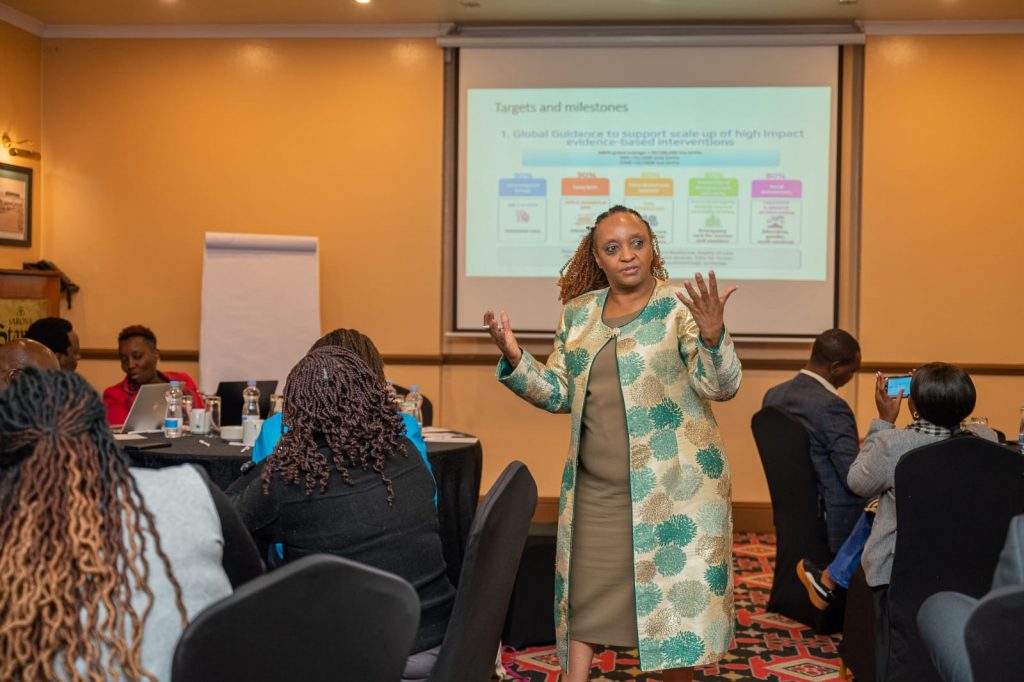
Prof. Anne-Beatrice Kihara, President of the International Federation of Gynecology and Obstetrics (FIGO), says women in low- and middle-income countries face additional risks because of shortages of skilled staff, weak emergency obstetric services, and delayed access to treatment.
She adds that poor nutrition has left over half of Kenyan women of reproductive age anemic, which increases vulnerability to blood loss. Kihara emphasizes that low hemoglobin levels during pregnancy also raise the risk of complications such as preterm birth and low birth weight.
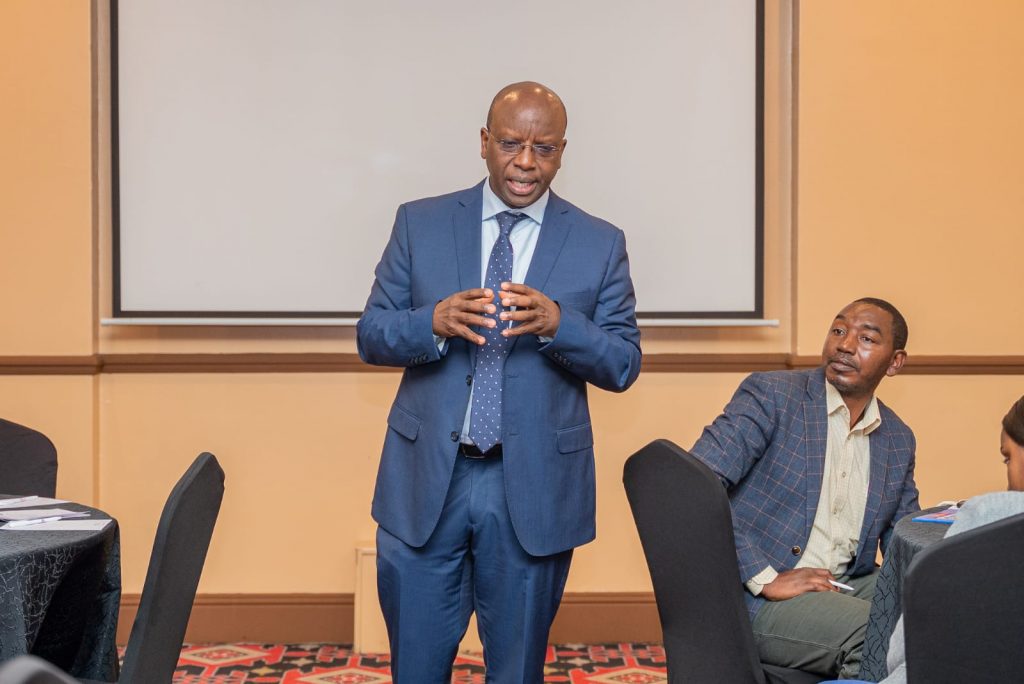
Dr. Kireki Omanwa, President of the Kenya Obstetrical and Gynaecological Society (KOGS), points to low maternal health-seeking behavior as a major barrier. Many women skip antenatal visits, meaning high-risk pregnancies go undetected.
Even women with normal pregnancies, he says, need careful monitoring to ensure early detection of complications like obstructed labor or fetal distress.
Managing PPH requires immediate treatment and access to blood, but Kenya faces a shortfall of about 200,000 blood units each year, according to the Kenya National Blood Transfusion Service (KNBTS), which currently meets less than half of national demand.
To address the blood shortage problems in Kenya the end PPH initiative has taken the PPH Run beyond advocacy by twinning it with blood donation and distribution to “save mothers’ lives.
Last year, the End PPH initiative organized an inaugural End PPH run and it will also take place this year, part of the PPH run activities entails a Rural Outreach and Mobilization Initiative for Network Growth (ROAMING) blood typing and donation scheme.
This year’s run is scheduled for 28th September 2025 in Nairobi and six other counties, and eight other African Countries.
According to Prof Obimbo the innovative scheme, akin to walking blood bank, is designed to increase availability, safety and access of blood to mothers in disadvantaged communities like Akinyi.
“The ROAMING Blood bank initiative will be undertaken in partnership with Eldon Biologicals Kenya, Kenya Red Cross Society, Kenya Tissue and Transplant Authority and UNICEF.”
“The initiative aims at bolstering the number of blood donors and create broader awareness of donors blood type,” Obimbo Said adding that, “When the blood type of an individual is known, it can save valuable minutes in treating patients for severe blood loss and save lives.”
Prof. Julius Ogeng’o from University of Nairobi, explained during KOGS and religious caucus meeting in Nairobi the insights on ‘Rethinking Blood Banks which plans to establish Roaming Blood Group Testing and Donation Practices for Women’s Health.’
“Access to safe blood is a lifeline for mothers facing childbirth complications,” Prof. Ogeng’o highlighted “the urgent need to introduce mobile blood donation units and proactive blood group testing, ensuring that no woman dies due to a lack of blood.”
In Akinyi’s case healthcare workers did not diagnose her problem immediately and experts cites late detection as a key challenge to PPH management and treatment.
To overcome diagnosis problem, Obimbo explains that many providers still estimate blood loss visually a method that underestimates bleeding in up to half of cases, costing precious time. To counter this, Kenya is rolling out the WHO-endorsed E-MOTIVE protocol, which uses a calibrated drape to measure blood loss accurately in real time.
“The WHO endorsed calibrated obstetric drape, measures blood loss accurately during childbirth, enabling early PPH detection and treatment, he explains adding that, “The “drape” has a funnel-like pouch attached to the bottom edge, it cuts life-threatening bleeding after vaginal births in hospitals by 60 per cent.”
While the drapes are not costly, changing the operations of a health system is far from affordable. It involves training healthcare workers and thus Kenya Obstetricians and Gynecologists are working together with Midwives association to scale up training and the uptake.
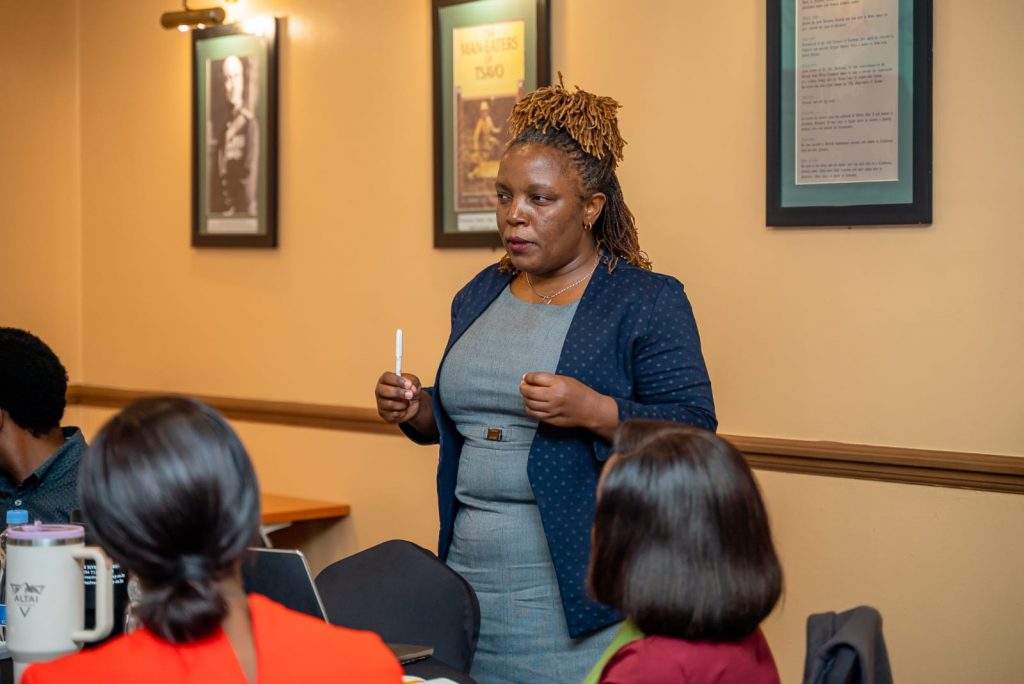
According to Eunice Atsali, Secretary General of the Midwives Association of Kenya (MAK), Kenya is adopting the WHO E-MOTIVE which combines rapid diagnosis with a treatment “bundle” that includes uterine massage, intravenous fluids, and uterotonic drugs, administered simultaneously.
“Because midwives can deliver the entire package, the approach is well-suited to rural areas with few doctors.”
Atsali adds that the protocol also trains health workers to recognize when cases need urgent surgical escalation.
She explains that once postpartum hemorrhage is diagnosed, the E-MOTIVE bundle is initiated ideally within 15 minutes. It comprises five coordinated interventions: uterine massage, administration of oxytocic drugs, tranexamic acid (TXA), intravenous fluids, and examination of the genital tract and placenta.
Crucially, the new approach insists on immediate, simultaneous application of all bundle components. “Even if bleeding slows after the first step, we continue. It’s all or nothing,” Atsali emphasized. Tranexamic acid, previously administered only after other methods failed, is now given right away within three hours of birth. Significantly, Kenya has signed clinical protocols that empower midwives to administer TXA without waiting for a doctor’s prescription.
“This is a huge step,” said Atsali. “It reduces delays and saves lives.”
The implementation of the E-MOTIVE approach not only standardizes care but also fosters synergy among health providers. “Teamwork is key,” Atsali noted, highlighting how providers are now working in unison, with clear roles, and utilizing crash carts stocked with all necessary supplies.
Kenya’s Ministry of Health is now prioritizing Health Products and Technologies (HPTs) for PPH within its national strategic reproductive health documents. This includes incorporating heat-stable carbetocin for prevention and establishing protocols for self-administered misoprostol in remote areas lacking skilled birth attendants.
The End PPH initiative is also advocating for guaranteed supplies of heat-stable uterotonics such as carbetocin, which do not require refrigeration and are better suited to resource-limited settings than oxytocin. Experts are further advocating the wider use of Tranexamic Acid, the advance distribution of misoprostol to women in remote areas, nationwide adoption of calibrated drapes, stronger referral systems with functioning ambulances, and mobile blood-collection units to address persistent shortages.
However, currently, Kenya is grappling with a critical shortage of obstetric drapes and PPH commodities.
Kenya’s maternal mortality ratio stands at 355 deaths per 100,000 live births five times higher than the Sustainable Development Goal target of 70 by 2030.
Dr. Laura Oyiengo, UNICEF Kenya, notes that when mothers die, their newborns’ survival prospects drop sharply, underscoring the urgency of saving both lives.
With proven tools now available, Kenya’s reproductive health experts argue that PPH is no longer an unsolvable problem. It is a matter of early detection, timely care, and reliable supplies. If these interventions are fully embraced, they say, no woman should have to bleed to death while giving life.
The Kenya Obstetrical and Gynaecological Society (KOGS) is also intensifying its awareness and advocacy efforts to tackle postpartum hemorrhage (PPH) and other threats to maternal and newborn health. Recognizing that many women, families, and even community leaders lack accurate information on lifesaving interventions, the Society is building partnerships that cut across sectors and social groups.
By fostering collaboration between religious leaders and gynecologists, KOGS is ensuring that trusted voices in communities are equipped with correct medical knowledge. This approach helps to dispel myths, increase acceptance of proven health interventions, and encourage expectant mothers to seek skilled care before, during, and after childbirth. In addition, KOGS is working with health champions who share their own experiences with excessive bleeding after birth, using personal testimony to make the dangers of PPH real and relatable to the public.
To amplify these messages, the Society has developed a sector-wide media engagement strategy designed to improve coverage of maternal and newborn health across print, broadcast, and digital platforms. This strategy identifies key topics that are both relevant and newsworthy—from safe pregnancy practices to timely emergency care, blood shortages, and new protocols like the E-MOTIVE approach.
In partnership with UNICEF Kenya, KOGS is also engaging journalists directly, particularly in the run-up to the PPH Run and related advocacy events. These efforts include training health professionals in effective communication, facilitating dialogue between reporters, policymakers, and maternal health experts, and ensuring that media outlets have direct access to credible sources of information.
The goal is to create a shared understanding of maternal, newborn, and child health challenges while highlighting solutions. By strengthening relationships between health practitioners and the press, KOGS aims to generate accurate, consistent, and impactful reporting—ensuring that the dangers of postpartum hemorrhage, as well as the tools to prevent it, receive the attention they deserve.


